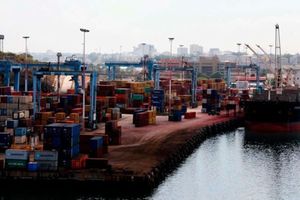Party politics: The oddity of strength and conflicts

What you need to know:
- These conflicts have proven to be costly to some political parties because when the raging political fires have burnt out, nothing resembling the previous political structure remains standing. Some parties have gone into oblivion while others have fared relatively well. Not a single party has been left untouched by these conflicts.
A story is told of a question Albert Einstein was asked by a journalist at a press conference in Princeton, New Jersey in January, 1946 about the troubled world of global politics which was constantly threatening global peace with the ever present danger of the atomic bomb.
A journalist is said to have asked: “Dr Einstein why is it that when the mind of man has stretched so far as to discover the structure of the atom we have been unable to devise the political means to keep the atom from destroying us?”
Einstein’s reported reply was complex in its simplicity: “That is simple, my friend. It is because politics is more difficult than physics.”
Those who follow our tortuous journey into competitive multiparty politics have come to understand that intractable conflicts between political actors are omnipresent, changing characters or venue from time to time.
These conflicts have proven to be costly to some political parties because when the raging political fires have burnt out, nothing resembling the previous political structure remains standing. Some parties have gone into oblivion while others have fared relatively well. Not a single party has been left untouched by these conflicts.
These conflicts manifest themselves in three ways: There are disputed intra-party elections where chairs may fly around, fists thrown, pre-ticked ballot papers caught or the police and anti-corruption officials called.
Then, there are conflicts about party’s leadership. These are the most common and can be found right from the outset of multipartism in the early 1990s. The final group are conflicts which involve elected officials from a political party, in particular members of parliament. There have been many instances of a group of MPs or a single MP bitterly disagreeing with their party’s leadership leading to their expulsion from the party, which, if not challenged lead to them losing their parliamentary seats.
The reasons for this state of affairs have ranged from some politicians being used by the powerful ruling party, CCM, to entice them to cause trouble, leave and be rewarded for their efforts of weakening the enemy.
The opaque nature of internal party processes has been another reason to explain these conflicts. That, a few individuals make decisions about party affairs and the rest of members are merely informed of such decisions. Political parties do not have a culture of being fair to their own members, which is precisely the reason why from time to time, those who have led accusations against other members leading to their expulsion, have found themselves in the same situation down the line.
There is also the argument that, these conflicts are reflective of the lack of sense of service to the public for those who join politics. That, it is all about the vast opportunities and wealth politics offers to those who succeed in being elected to public office.
However, could all this also be explained by the perception of relative strength of a political party, its leader or a group of its leaders?
That the bitter party primaries reflect the chances of winner within a party of winning it outright against opponents from other parties? That, the bitter leadership battles are reflective of the party’s relative strength compared to other political parties? That, expelling a few high profile members is an explanation of how those in a charge of a political party view their political capital with their members and the general public?
The multiparty journey seem to affirm this reasoning.
The bitter leadership crises of NCCR-Mageuzi of the heady days of Agustine Mrema and Mabere Marando came when their party was doing relatively well and had reached political heights which had never been reached by another opposition party before them. It was the same thing with the many leadership conflicts within the CUF where many prominent members ended up on the exit door.
The logic is simple; there is nothing to dispute about if you have nothing. The many cat and mouse games members of certain political parties play with government authorities during party primaries are reflective of their chances of being elected. It is no accident CCM ends up making the most headlines. That is not just about its vast network across the country.
It is also no accident that parties like Chadema or at some point in the past, CUF, were blamed by some of their members for allocating special seats favourably to certain prominent members regardless of the criteria which had been set prior to elections.
It defies normal logic to think that relative political strength leads to endless conflicts in these political parties. At the same time it all makes perfect sense. When this perceived strength wanes, the conflicts intensity subsides and eventually disappear altogether.
Yes, its head spinning!




